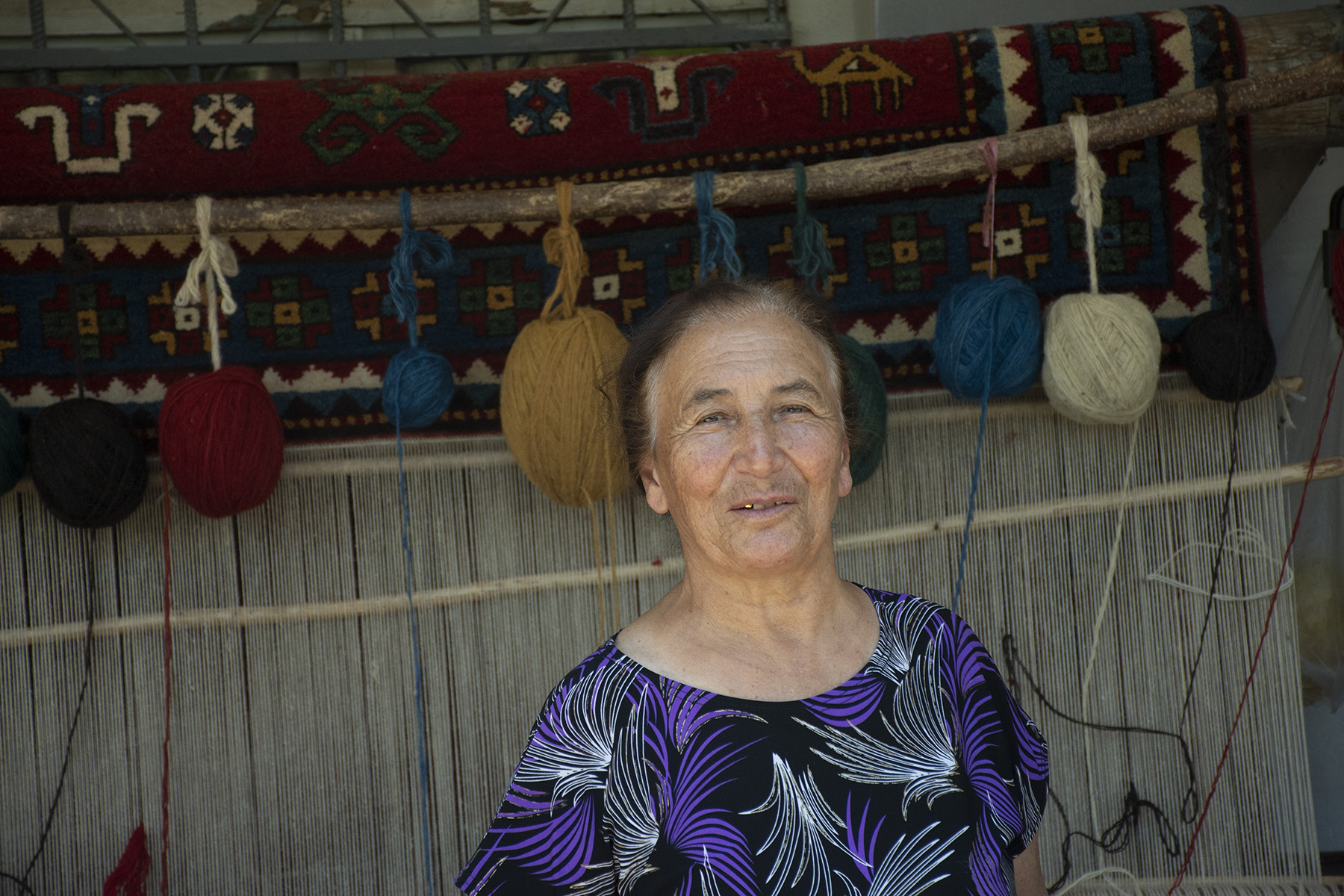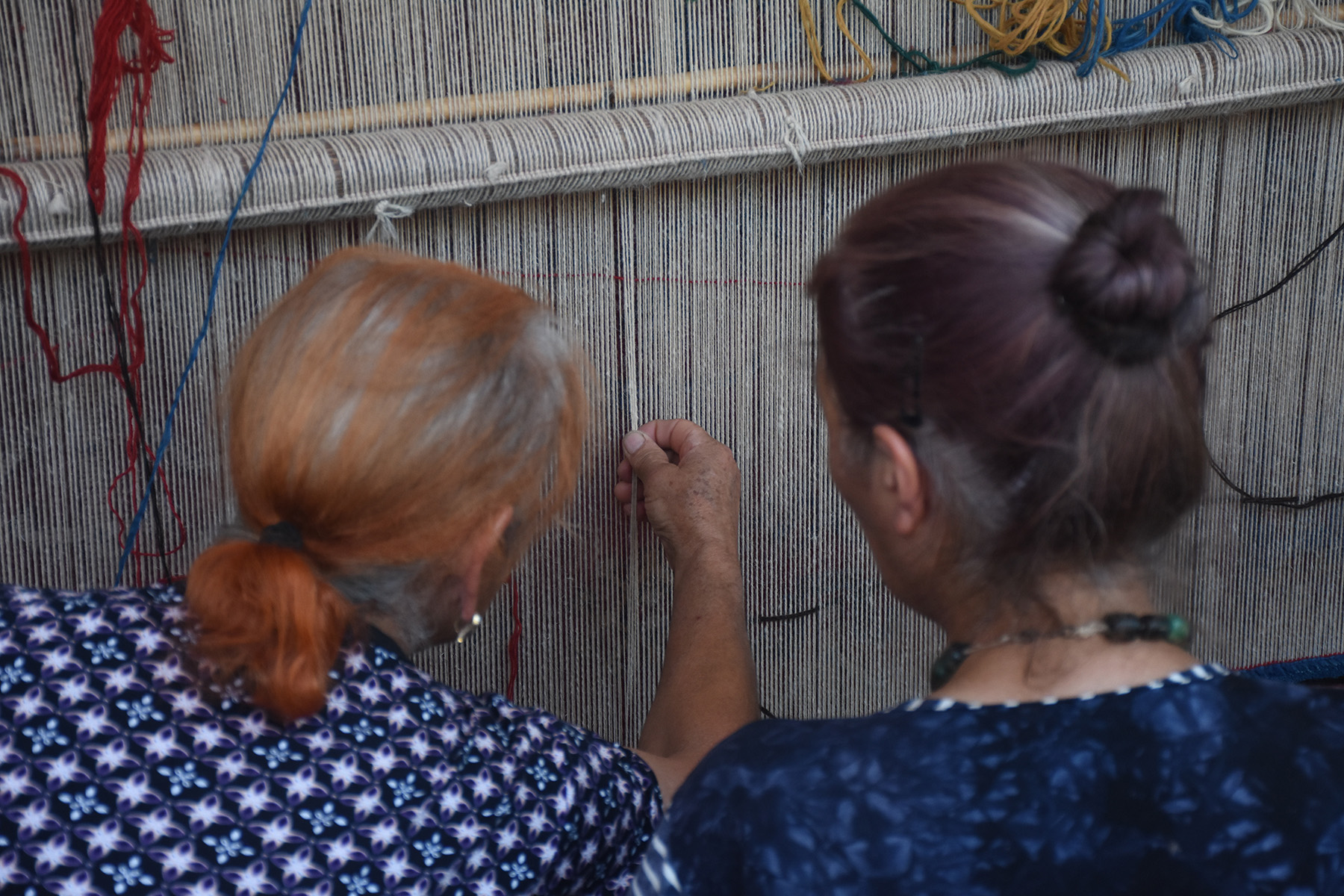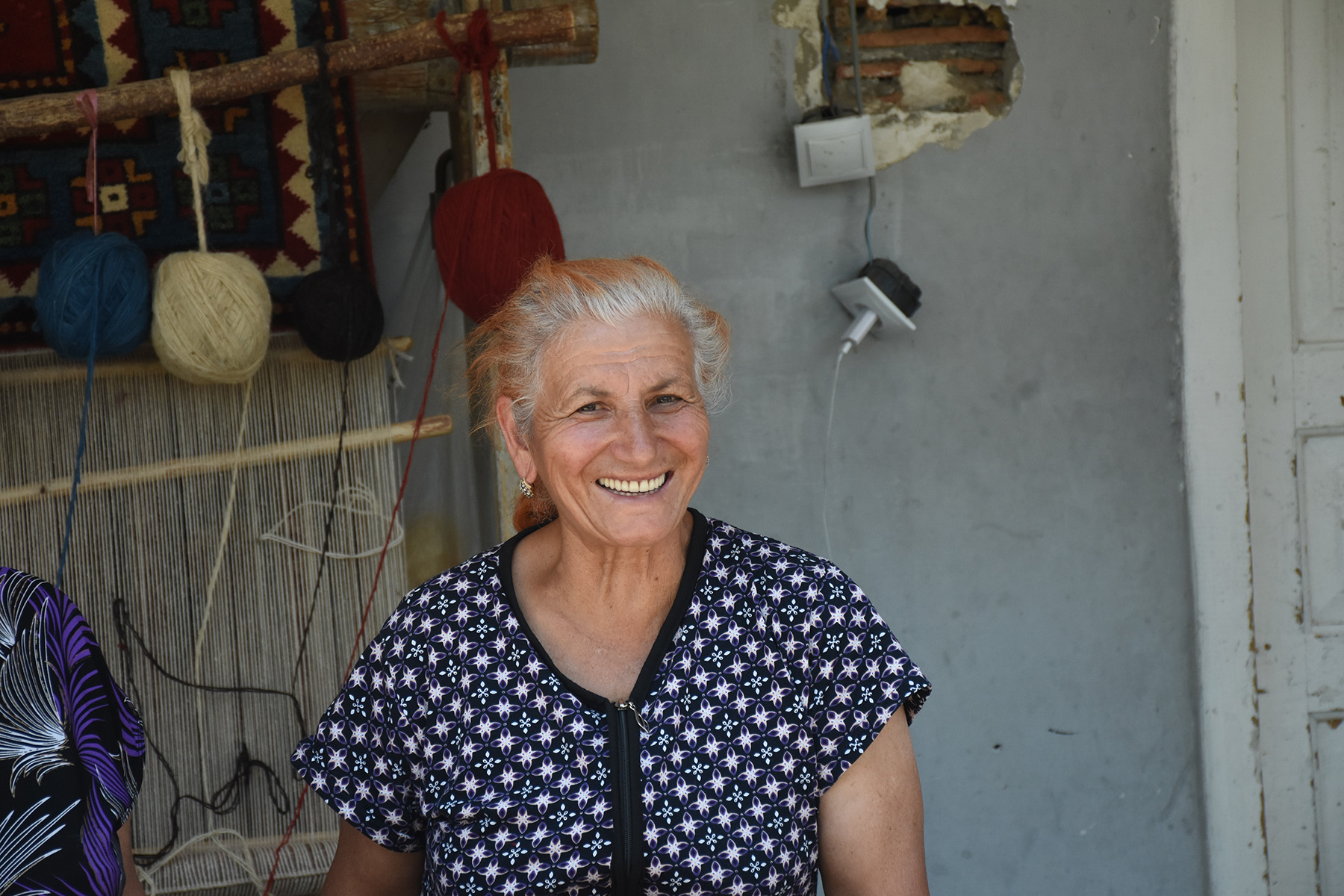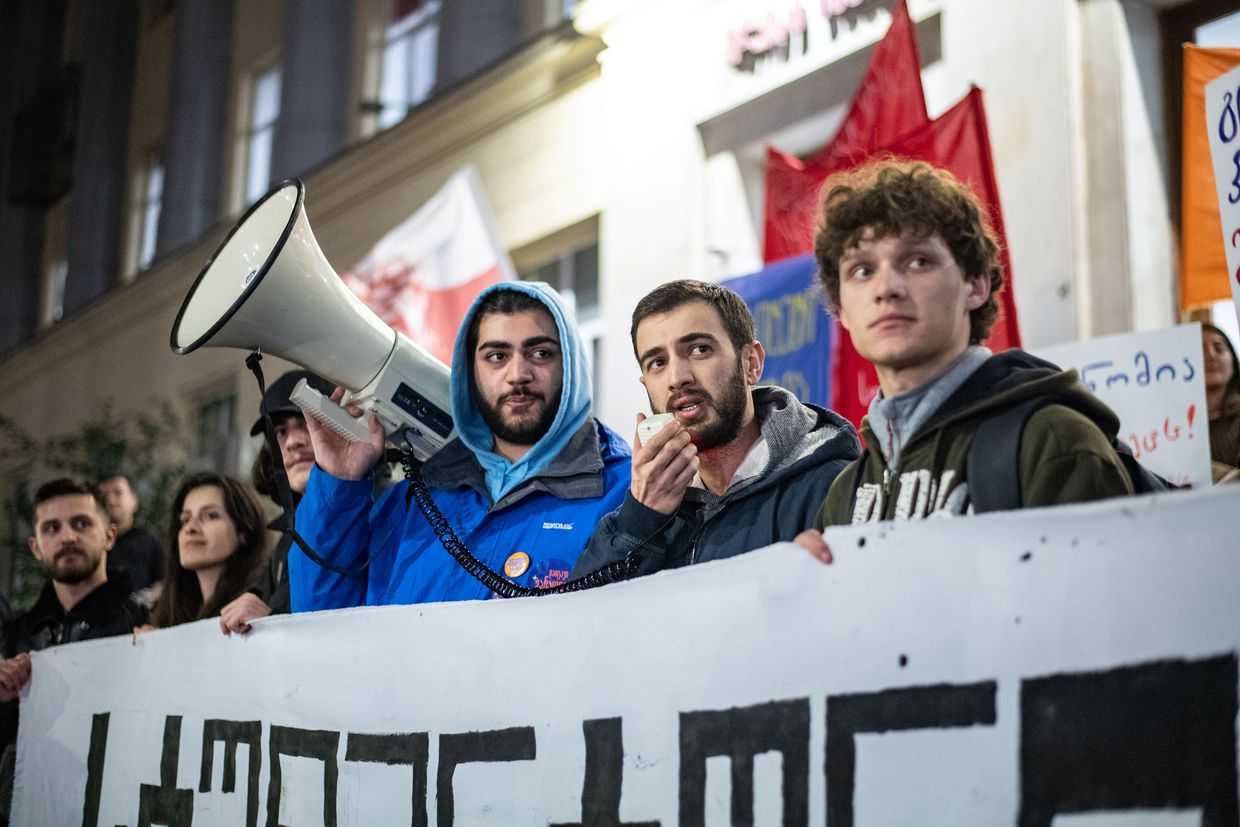
The Kajarova sisters, 68-year-old Fatma and 72-year-old Tukazban, have been helping their grandmother weave carpets since childhood. The sisters have lived their whole lives in the village of Kosalar, located in the southern Georgian region of Kvemo Kartli.



The Borchalo carpets they weave are made only in Kosalar and the village of Iormughanlo, in the neighbouring Kakheti region — only a few dozen women carry on the carpet weaving tradition.
‘I was six years old when I first helped grandma [make carpets]’, Fatma told OC Media.
Weaving carpets by hand is a long and laborious process, with the average carpet taking at least two women working between one and two months — the difficult nature of the work means the tradition is left almost solely in the hands of the elderly.
‘There are now very few women left in our village who weave carpets, and it’s very rare for anyone from the younger generation to be able to make a carpet from start to finish’, Fatma said.
Borchalo carpets have a centuries-old history in Georgia, and are decorated with unique and complex symbols to express a variety of often abstract concepts such as the strengthening of the family, its protection, or even migration.









